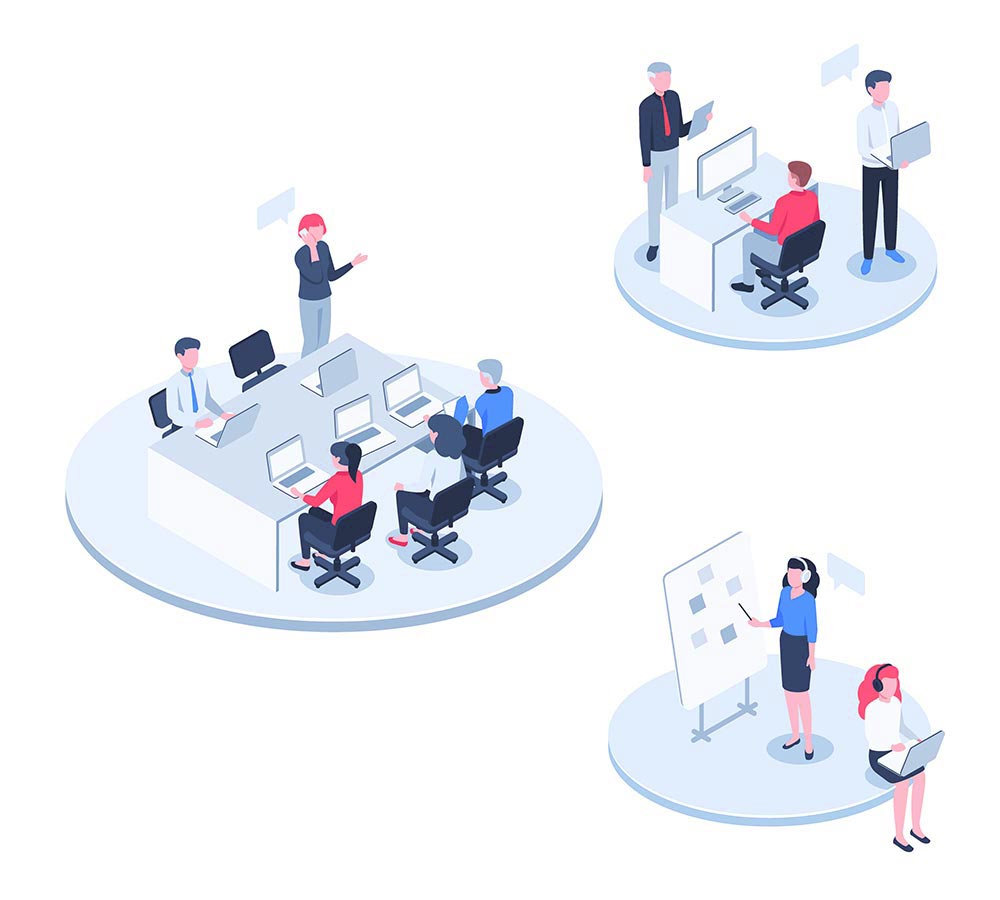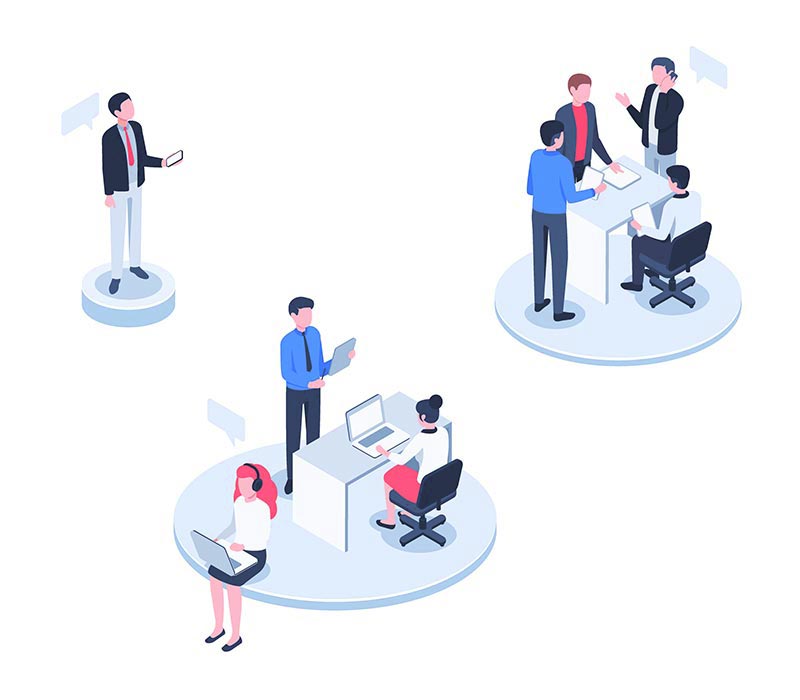
About GreenTeam Project
GreenTeam – Education for climate and ecological emergency is an Erasmus+ funded project under the Key Action 2: »Cooperation partnerships in vocational education and training«.
The project started on November 1, 2021 and will run until October 31, 2023. The kick-off meeting of the GreenTeam project took place in form of a video conference on December 14, 2021.
The GreenTeam project aims at building knowledge, skills and attitudes in the field of climate change and sustainable development. GreenTeam envisages popularization of modern, innovative e-learning methodology and tools to raise participants’ competences related to ecology and providing educators and teachers with appropriate tools for working with youth. It will contribute to innovation in vocational education and training (VET) and increase the attractiveness of VET. GreenTeam will help participants in their professional and personal development and increase the possibilities of engagement in future areas and sectors of the European and non-European labor market, related to climate and sustainable development.
Key sectors connected with Ecology
Carbon footprint
An organisational or individual carbon footprint is the total, annual emissions of greenhouse gases (mainly carbon) related to the activities of the specific organisation or individual. The total activities included are defined across 3 different ‘scopes’ of carbon.
Scope 1: direct burning of carbon fossil fuels by the organisation or individual – this includes gas in owned buildings, or petrol in vehicles.
Scope 2: where another organisation burns the fossil fuels, but the output is used by the organisation or individual, this is mainly electricity used from a national grid.
Scope 3: all other sources of carbon created by the activities of the organisation or individual, this includes for example the carbon burnt in an organisations supply chain to provide raw materials for products, or the carbon burnt in the use of such products – e.g. energy usage of equipment made.
Renewable energy
Renewable energy is usable power (such as heat or electricity) that comes from a renewable or green resource or processes that are constantly replenished.
Sources of energy:
- solar energy
- wind energy
- geothermal energy
- hydroelectric power
Sustainable consumption and ecological behaviour
Sustainable consumption means the promotion of resource and energy efficiency, sustainable infrastructure, as well as ensuring access to basic services, decent and environmentally friendly jobs and a better quality of life while respecting the whole ecosystem. Of course, sustainable consumption is part of the concept of sustainable development which naturally concerns not only environmental sustainability but also economic and social sustainability.
According to the definition proposed in the report Our Common Future published in 1987 by the World Commission on Environment and Development (Bruntland Commission) of the United Nations Environment Programme, “sustainable development” means a development capable of ensuring “the satisfaction of the needs of the present generation without compromising the ability of future generations to meet their own needs.
The word “sustainability” describes the compatibility between the development of economic activities, the safeguarding of the environment and the people’s quality of life of the people. Sustainable consumption is therefore influenced not only by economic policies and practices but can, although to a limited extent, be influenced from below by consumers and lifestyles compatible with the capacity of the biosphere to absorb the effects of human activities. In this perspective, it becomes interesting to understand how the awareness of a virtuous ecological behavior can also influence the consumption system.
By ecological behavior, in fact, we mean all actions that contribute to the preservation and/or conservation of the environment. But we know that the supply-demand relationship is the result of a complex iteration and is, above all, influenced by a determined production system. For this reason, it is important to be aware of what sustainable development is in order to adopt sustainable consumption and behavior.
Biodiversity
The word biodiversity has become a key term in the goals of conservation of natural resources and sustainable development, but it is surprisingly a pretty recent term. Indeed, it is only in the late 1980s that the two words “bio”, meaning “life” and the word “diversity”, referring to the variability of life forms, were combined to form what is now at the forefront of the scientific papers.
Biodiversity refers to all forms of life on Earth, from animals, to plants, to fungi and microorganisms, and represents a world so rich that many species comprised in the living ecosystem have yet to be discovered. Biodiversity also refers to the many species that have gone extinct, and is currently undergoing a great change due to mass extinctions, many due to the negative impact of climate change and human activities.
As we recognize the importance of sustaining biodiversity, we become more and more aware of the strategies to adopt at societal and economic levels to reduce the threats that it is facing.
Water management
Integrated Water Resources Management (IWRM) is a process which promotes the coordinated development and management of water, land and related resources in order to maximize the sustainability of ecosystems and ecosystem services. Despite being one of the most important natural resources, many surface and ground water bodies are polluted, built-up or degrade in other ways, resulting in loss of ecosystem services.
The concept of IWRM includes practices on regional, local and micro level to prevent these negative impacts and improve the quality of water resources. These practices depend on natural materials and mimic natural processes, with the implementation of hard technological and soft social solutions. The topic is in line with the »Water Framework Directive«, which also stresses the responsibility of individual in assuring the quality of water resources.
Food and agriculture systems
Agriculture systems are anthropogenic or seminatural ecosystem used primarily for food production. In western countries the predominant agriculture system is so called conventional or industrial agriculture, which includes chemical and mechanical inputs negatively impacting the environment and human health.
Because of negative impacts there is a growing need for sustainable multifunctional agriculture systems, which include co-natural food production safe food processing, fair food trade, local community inclusion and development of supplemental activities such as tourism. These agricultural systems depend on local resources (natural and social resources, ecosystem services), traditions (knowledge and skills developed in the long-term and repeatedly validated), available technologies (mechanization, robotization, sensors, remote sensing), and ethics (environmental and social responsibility).
Environmental protection
The act of protecting the natural environment at the individual, the collective, and governmental levels is the meaning of environmental protection. Environmental protection is also connected to the terms of prevention and restoration.
Recycling and biodegradation
Recycling: the process of converting waste materials into other products, materials, etc.
Biodegradation: the degradation of the materials into natural products with the contribution of microorganisms (bacteria, fungi, etc.).
Climate knowledge
Climate change is a problem that affects the entire planet Earth. It is about changes in temperatures and weather patterns. Human activities have been the main driver for such a drastic change in temperatures nowadays.
Different international organisations such as UNESCO and the United Nations, among many others, are trying to raise awareness of the seriousness of the issue while at the same time implementing new measures to be carried out by the population.
Transport and pollution
Transport plays a very important role in today’s society and economy. Having an efficient transport system is key to our quality of life. However, transport is one of the factors affecting the environment and noise. Moreover, transport consumes one third of all final energy in the EU. Numerous EU documents are emphasising the measured use of transport and the importance of controlling carbon emissions from transport.
- Click on sectors for more information
Our goals
We decided to take the following actions:
IO1 — Creation of an innovative MOOC
IO2 — Workshop program development – teaching materials
IO3 — Testing & implementation of workshops and platform
IO4 — Development of teaching guides for educators
IO5 — Creation of an innovative e-learning platform
- IO - Intellectual Output
